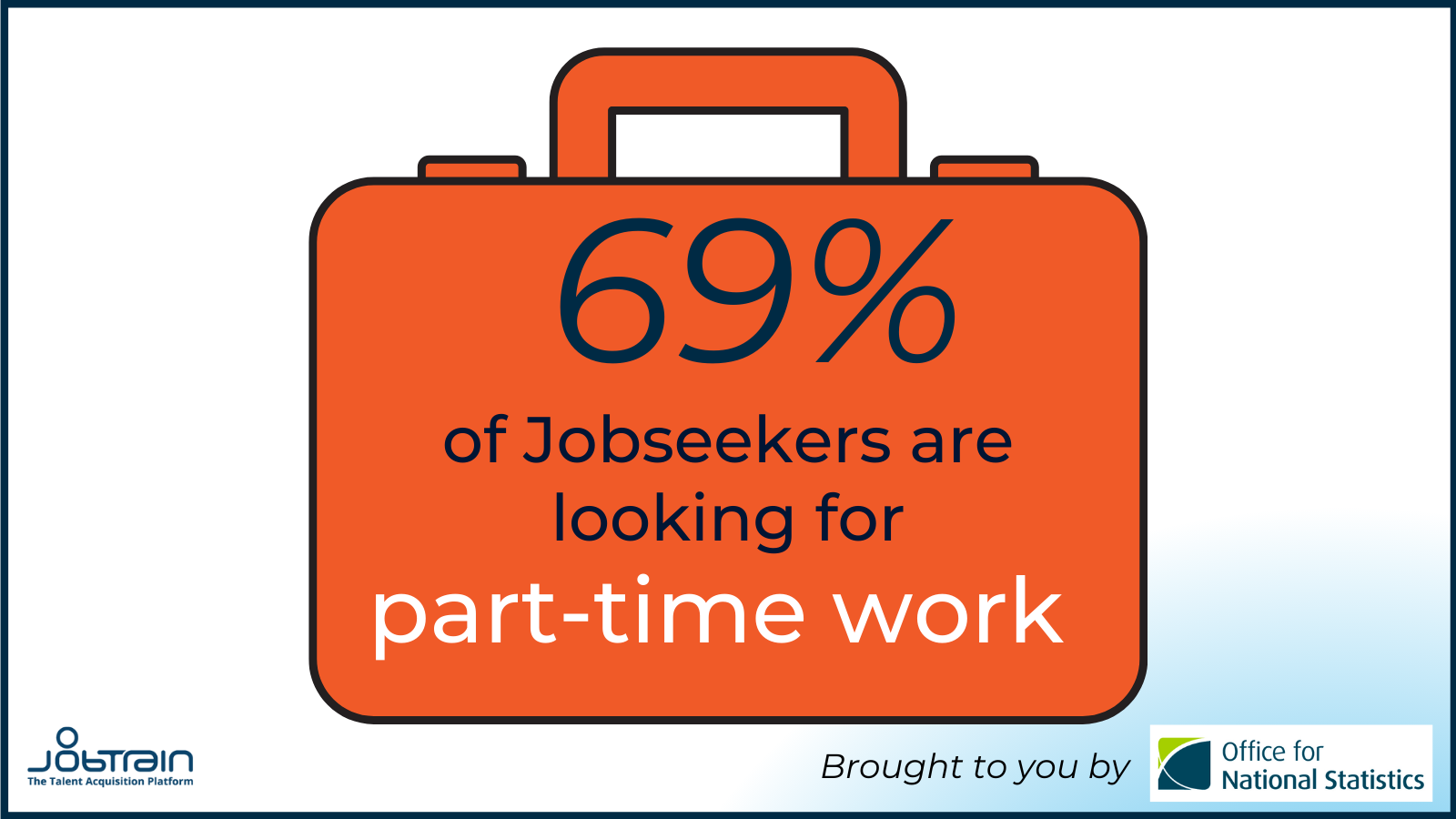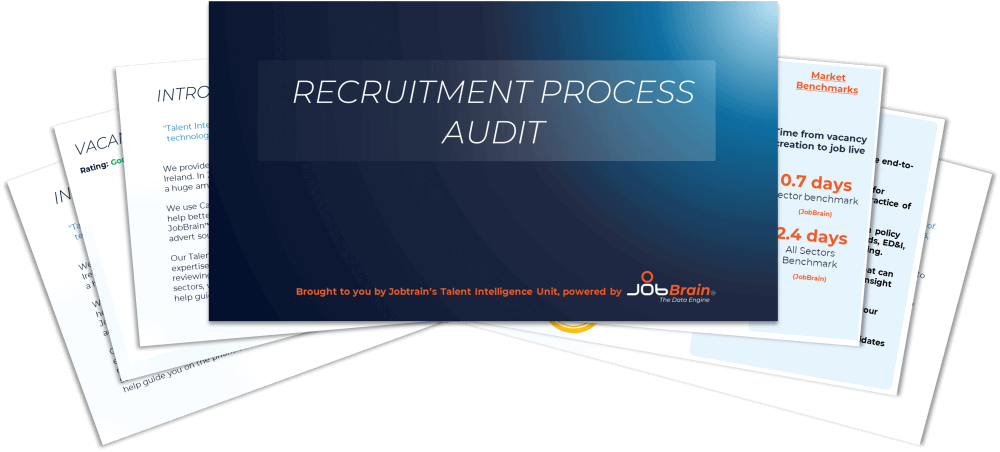1 – What is Talent Intelligence?
2 – How is Talent Intelligence Valuable?
3 – Where should someone start with Talent Intelligence?
4 – What are your predictions for recruitment in the second half of the year?
Jobtrain is the parent company of JTGO. The Jobtrain ATS focuses on helping large companies of 250 employees or more, while JTGO's recruitment software is designed with small businesses in mind.
The Talent Intelligence Unit caters for businesses of all sizes.
Recently, Jobtrain’s Director of Strategic Partnerships – Giles Heckstall-Smith – sat down with Talent Intelligence Director – Gary Towers – to discuss recruitment data and how to process meaningful information.
What is Talent Intelligence?
The technical definition is “the augmentation of internal and external people data,” but Talent Intelligence is more than just data. At a basic level, Talent Intelligence is information pulled together that helps us analyse recruitment.
It’s a strategic exercise – or methodology – that informs business decisions regarding employee engagement, recruitment, and retention.
HR analytics, salary research, market information, all come under the banner. Sometimes it can sit in Human Resources and sometimes it can be its own department!
How is Talent Intelligence of value to recruiters?
The value comes from the flexibility and depth of the data this methodology can produce. We cover anything from;
Product launches – can your business support the launch with the right people and if not, what are you missing and how can you get it?
Manpower planning – what people do you need for overall business growth and how will you find them?
Performance optimisation – looking at a single point of weakness in your overall recruitment process that could transform the whole output – such as improving candidate drop-off.
Regarding performance optimisation, we’ve undertaken some research on images and videos in job adverts recently and learned that using these simple tools led to a 30% higher application rate! But what I noticed was that it improved the quality of the candidates as well. There was only a 20% rejection rate for candidates who applied after seeing an image or video in your advert. Because these videos and images show off your company culture most clearly, you’re reducing the amount of candidates who wouldn’t be the right fit, cutting back on admin and upgrading your talent pool in the process!
 However, the majority of our enquiries are for help with Equality, Diversity and Inclusion! Typically with this work we see that a lot of homegrown solutions are superficial – like changing how diverse the people are in an advert. Talent Intelligence would break down the information within your applicant tracking system, look at the postcodes of your candidates, where you’re pushing your jobs, the language used in your adverts, and assess if there’s any unconscious bias that might be getting missed.
However, the majority of our enquiries are for help with Equality, Diversity and Inclusion! Typically with this work we see that a lot of homegrown solutions are superficial – like changing how diverse the people are in an advert. Talent Intelligence would break down the information within your applicant tracking system, look at the postcodes of your candidates, where you’re pushing your jobs, the language used in your adverts, and assess if there’s any unconscious bias that might be getting missed.
This assessment would then provide insights as to what could be improved and where to focus your efforts.
Where does someone start with gathering recruitment data?
Start with what’s right in front of you. For most companies – that’s the applicant tracking system. All ATS’s will have some reporting functionality – JTGO's has a fantastic insights dashboard which can give you all of your key information at a glance.
Before you try to tackle the world and consume every piece of data, look at these three areas in your own process, pull together as much information as you can, and set your benchmarks.
Our approach is to start with the 3 E’s. Engagement, efficiency and ED&I.
 Once you’ve established those, it’s time to get a little bit deeper. Move on to your recruitment timescales, application ratios, advert sources to see how you’re spending your money and start to thread together a story. What behaviour are you seeing about your candidates? What gaps are there? How might your actions be influencing the type of candidates you’re getting?
Once you’ve established those, it’s time to get a little bit deeper. Move on to your recruitment timescales, application ratios, advert sources to see how you’re spending your money and start to thread together a story. What behaviour are you seeing about your candidates? What gaps are there? How might your actions be influencing the type of candidates you’re getting?
And of course – if that all sounds daunting, that’s what our consultation and audit service is there for!
What are you expecting to see next in the world of recruitment?
The current state of the market is that there are too many vacancies for the number of candidates. Everyone is clamouring to fill roles opened up by attrition and it’s having a domino effect.
The question everyone’s asking is; when will this end?
.png?width=1600&name=Post%20(3).png) The answer is economic, not just cultural, due to rising inflation and the rising cost of living, and as a result we’re looking at macro-economic trends and how much this will shift the recruitment mindset. Candidates have new priorities following the pandemic, so it is a candidate-driven market, but this will be mitigated by necessity as energy and food prices hit.
The answer is economic, not just cultural, due to rising inflation and the rising cost of living, and as a result we’re looking at macro-economic trends and how much this will shift the recruitment mindset. Candidates have new priorities following the pandemic, so it is a candidate-driven market, but this will be mitigated by necessity as energy and food prices hit.
We noted back in January that the majority of candidates prioritised company culture and flexible working options when looking for work, but there’s every indication that these priorities will change. Salary expectations might become the top driver again.
If a recession does come, we might see companies resort to down-sizing to cut costs. If that happens the market might end up rebalancing. We won’t have too many vacancies and not enough candidates, we might have not enough vacancies and too many candidates.
These are all areas we’ll concentrate on with our second Market Insights Report later in the year.
Generationally, it’s becoming more and more important to understand how we can reach out to Generation Z, because they’ve entered the marketplace and they have their own expectations of work. We see that Gen Z currently want flexible working as an option, but it’s not their top priority. They want a workplace where they’ll grow, feel nurtured and safe, with the ability to embrace the social aspect of working life.
We’ve discussed recruitment strategies for Gen Z in more detail here.
In Summary
- Talent Intelligence is the augmentation of external and internal people data.
- It’s a flexible methodology which can help with anything related to recruitment; candidate deficits, business growth, ED&I etc
- This is a service Jobtrain’s Talent Intelligence Unit provides in the form of consultation and audits.
- If you want to try it yourself, start with the 3 E’s – Engagement, Efficiency & ED&I
- Sign up to receive Jobtrain's TICTAC monthly email digest (Talent Intelligence Communication for the Talent Acquisition Community)
- Look out for more details on Jobtrain's next webinar with Andrea Garvey from Talent.com on 15th June
- Don't worry about missing any of the HoW Talent summer series of webinars - you can sign up for webinar email alerts here